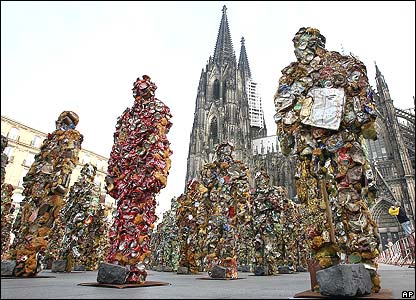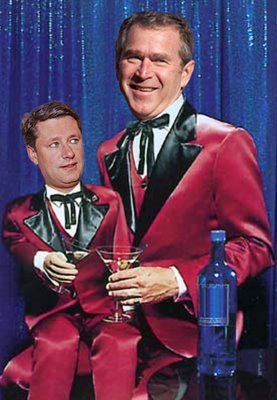 I have always been interested in the idea of proxemics, first introduced to me in an anthropology course. Proxemics deals with the social construction of personal space – how close we stand to each other and how this changes with the situation. If you’re North American or Northern European, you probably stand closer to a friend at a bar and further away from a client when discussing business. Proxemics also extends to how we construct our space as a culture. North Americans have the “buffer zone” of a front hall when entering a house. In Cuba, the front door of most houses opens straight into the living room.
I have always been interested in the idea of proxemics, first introduced to me in an anthropology course. Proxemics deals with the social construction of personal space – how close we stand to each other and how this changes with the situation. If you’re North American or Northern European, you probably stand closer to a friend at a bar and further away from a client when discussing business. Proxemics also extends to how we construct our space as a culture. North Americans have the “buffer zone” of a front hall when entering a house. In Cuba, the front door of most houses opens straight into the living room.So I always find it interesting to “deconstruct” how space is used. And a recent exhibit at The Toronto Free Gallery about Suburbia got me thinking about how suburbs use space.
It has been said before, but the suburbs are built around the mighty automobile. My visits to Ajax have shown me outdoor malls where the space assigned to parking lots out-measures the retail space by a ratio of at least 4:1. And these clusters of massive Wal-Marts, Old Navys and Best Buys are set far enough away from the residential masses of cookie-cutter houses attempting individuality through variations in colour and orientation of layout, that a car is “required” in order to “pop ‘round the shops.”
 Now let’s take a look at those mass-produced, lower selling price, but-still-accessible-to the-city (by car, of course, or by train, but you have to drive to the train station) houses that dot the suburban landscape. What is the most prominent feature of the house? The sweeping bay window? The detailed brickwork over the door frame? The carefully-placed stained glass in the front room window? No, it’s the garage, front and centre in many suburban houses. And a lot of garages have space for two or more cars. During my time in England, I noticed that garages were not a required part of housing and were often tacked on well after the house was built. As much as they moan, the British have a better and more comprehensive transit system than we do in Canada, therefore houses do not need to be built around housing a car.
Now let’s take a look at those mass-produced, lower selling price, but-still-accessible-to the-city (by car, of course, or by train, but you have to drive to the train station) houses that dot the suburban landscape. What is the most prominent feature of the house? The sweeping bay window? The detailed brickwork over the door frame? The carefully-placed stained glass in the front room window? No, it’s the garage, front and centre in many suburban houses. And a lot of garages have space for two or more cars. During my time in England, I noticed that garages were not a required part of housing and were often tacked on well after the house was built. As much as they moan, the British have a better and more comprehensive transit system than we do in Canada, therefore houses do not need to be built around housing a car. The priority of the automobile aside, it was something different in the Toronto Free Gallery’s exhibition that got me onto proxemics. One piece was an enclosure of six-foot privacy fencing (like the kind shown at left), the inner contents visible only in snippets as you tried to peer through the small lines of open space between the slats. The idea was exactly as the name of the fencing indicates: the attainment of privacy. And when I boldly opened the latch to the installation (still not sure if this was intended), I caught a glimpse of a naked female torso cast in stone.
The priority of the automobile aside, it was something different in the Toronto Free Gallery’s exhibition that got me onto proxemics. One piece was an enclosure of six-foot privacy fencing (like the kind shown at left), the inner contents visible only in snippets as you tried to peer through the small lines of open space between the slats. The idea was exactly as the name of the fencing indicates: the attainment of privacy. And when I boldly opened the latch to the installation (still not sure if this was intended), I caught a glimpse of a naked female torso cast in stone.They say that high fences make good neighbours, a saying that must be uniquely North American/European. I bet the Cubans have a slightly different maxim: easily accessible family rooms with no neutral space make for good neighbours.
Although it probably sounds better in Spanish.





























